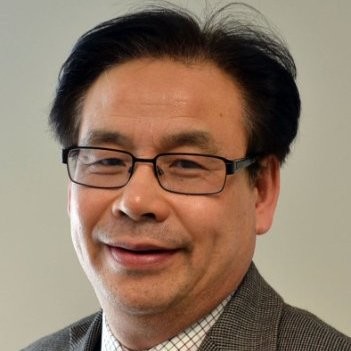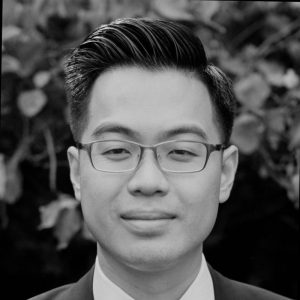A pair of researchers at the Albert Einstein College of Medicine in New York faked data in 50 figures in 16 NIH grant applications for six years starting in 2013, according to new findings from the U.S. Office of Research Integrity (ORI).
According to the ORI, Daniel Leong, a former lab tech at Einstein,
intentionally, knowingly, or recklessly falsified and/or fabricated Western blot and histological image data for chronic deep tissue conditions including osteoarthritis (OA) and tendinopathy in murine models by reusing image data, with or without manipulating them to conceal their similarities, and falsely relabeling them as data representing different experiments in fifty (50) figures included in sixteen (16) PHS grant applications. In the absence of reliable image data, the figures, quantitative data in associated graphs purportedly derived from those images, statistical analyses, and related text also are false.
The ORI’s findings in the case of Hui (Herb) Bin Sun’s case were similar, but not as detailed. The reports suggest that Leong faked the data, and Sun approved the grant submissions. They are both called “former” Einstein employees in the findings. Sun was professor of orthopedic surgery and radiation oncology.
Neither Leong nor Sun admitted or denied the findings, according to ORI. Sun agreed to 12 years of supervision for any research funded by the Public Health Service, the parent agency of the NIH, and Leong agreed to be barred from receiving any such funds for four years.
Leong and Sun study bone and joint diseases, including potential botanical treatments. Sun founded the New York R&D Center for Translational Medicine and Therapeutics, Inc. (Ny.TmT), which says it is “a R&D company with a long-term goal of development and commercialization of therapies that will be effective in treating and curing musculoskeletal diseases and disorders such as osteoarthritis, tendinopathy, and cancer.” Leong later joined the company.
At least one of the NIH grants was transferred to the company some years ago.
Sun and Leong have had at least one paper retracted. In 2018, Scientific Reports retracted “The Role of Scleraxis in Fate Determination of Mesenchymal Stem Cells for Tenocyte Differentiation” and referred to an “Inquiry into an allegation of research misconduct at the Icahn School of Medicine at Mount Sinai.” Sun’s affiliations on the paper included Mount Sinai.
Sun did not immediately respond to a request for comment.
The findings of misconduct are the third and fourth of 2022 for the ORI, which last year made just three findings.
Update, 1900 UTC, 3/21/22: Sun’s and Leong’s names have been scrubbed from the Ny.TmT website. Here is an archived copy from the Wayback Machine.
Update, 2230 UTC, 3/22/22: Einstein tells us that Sun left the institution at the end of 2019, and that Leong left at the end of 2016.
Like Retraction Watch? You can make a one-time tax-deductible contribution by PayPal or by Square, or a monthly tax-deductible donation by Paypal to support our work, follow us on Twitter, like us on Facebook, add us to your RSS reader, or subscribe to our daily digest. If you find a retraction that’s not in our database, you can let us know here. For comments or feedback, email us at [email protected].


It seems to me that it is even not a big deal to be caught!
I can’t imagine a regular citizen forging documents to get some (taxpayers-funded) benefits (some grants, some tax credits, some covid stimulus, some insurance payments…), being caught, and not being sent to jail or having to repay with penalties!
Hey, they threw the book at them! Busted for 16 fraudulent applications led to a 4 year funding ban. That’s three months per fraud. ORI really laid down the hammer as a deterrent for others this time.
“That’s three months per fraud. ”
Lol!
Quite frankly, I would love to see foreign nationals who get busted on fraud to be deported.
Maybe I missed it, but I didn’t see anywhere in the article or ORI case summaries mentioning that they were foreign nationals?
Is there something about AECOM?
https://www.aecom.yu.edu/departments/medicine/medicine.aspx?id=54182
https://www.legacy.com/us/obituaries/nytimes/name/herbert-tanowitz-obituary?id=16593988
Lengthy Pubpeer list: https://pubpeer.com/search?q=tanowitz
Herbert Tanowitz may be dead, but there are many extant authors would could clear up the problematic data.
Any university of nontrivial size is going to have at least one professor with a lengthy pubpeer profile. You might as well ask “is it something about Cornell?” and point to Wansink.
The only institution where I suspect a systemic problem is Duke. Having to repay $100 million in funding is really something.
The famous Chinese surname “Sun” makes me think of two bad occurrences due to the CAS academician named Xiaojing Zheng. She had a large number of retractions, e.g. https://doi.org/10.1016/j.geomorph.2013.08.026 for “Geomorphology” & https://doi.org/10.1016/j.sedgeo.2015.01.009 for “Sedimentary Geology”.
“Sun agreed to 12 years of supervision for any research funded by the Public Health Service, the parent agency of the NIH, and Leong agreed to be barred from receiving any such funds for four years.”
Continuing the proud tradition of ORI not imposing any actually meaningful sanctions.